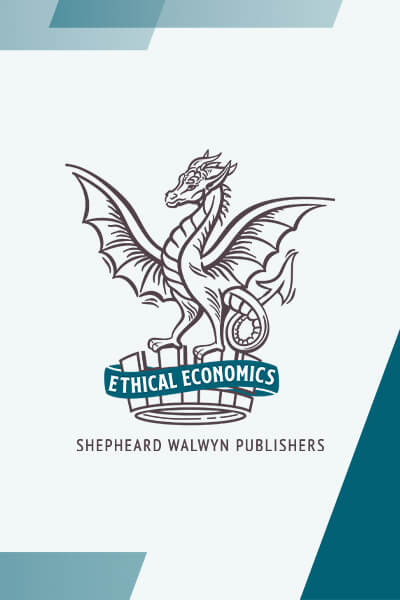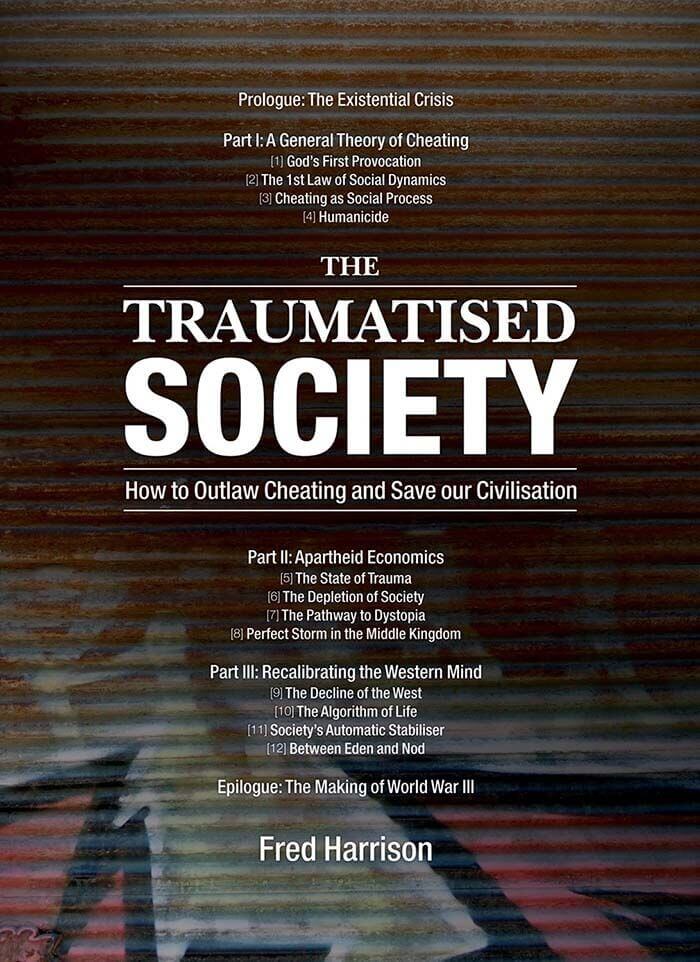The Land Value Tax (LVT) is a “radical” form of taxation first proposed by Henry George in his 1879 Progress and Poverty (see What If Marx Got it Wrong?). What George proposes is to replace taxes on wages, purchases, and investments with a tax on unimproved land and natural resources. Fred Harrison’s The Traumatised Society: How to Outlaw Cheating and Save Our Civilisation provides an exhaustive update of George’s original work.
As Winston Churchill famously observed, “History is written by the victors.” Nearly all history books written in the last 400 years were written by or on behalf of the ruling elite. The Traumatised Society is unique in that it recounts the history of the industrial revolution from the perspective of the 99%. Harrison also presents a simple, but elegant prescription for taking back power from the corporate oligarchy, ending economic inequality and the debt crisis, staving off ecological disaster, and preventing World War III. On the surface these claims appear extravagant and somewhat grandiose. Yet, in my view, Harrison makes his case very convincingly.
Adam Smith was the first prominent economist to propose the LVT as the most “moral” and least economically harmful tax in his classic Wealth of Nations. Neoconservative icon Milton Friedman also considered it the “least bad” kind of tax. The most famous contemporary Georgist is former World Bank Economist and Nobel Prize winner Joseph Stiglitz.
Basically the argument for an LVT goes as follows: click here to read more.







